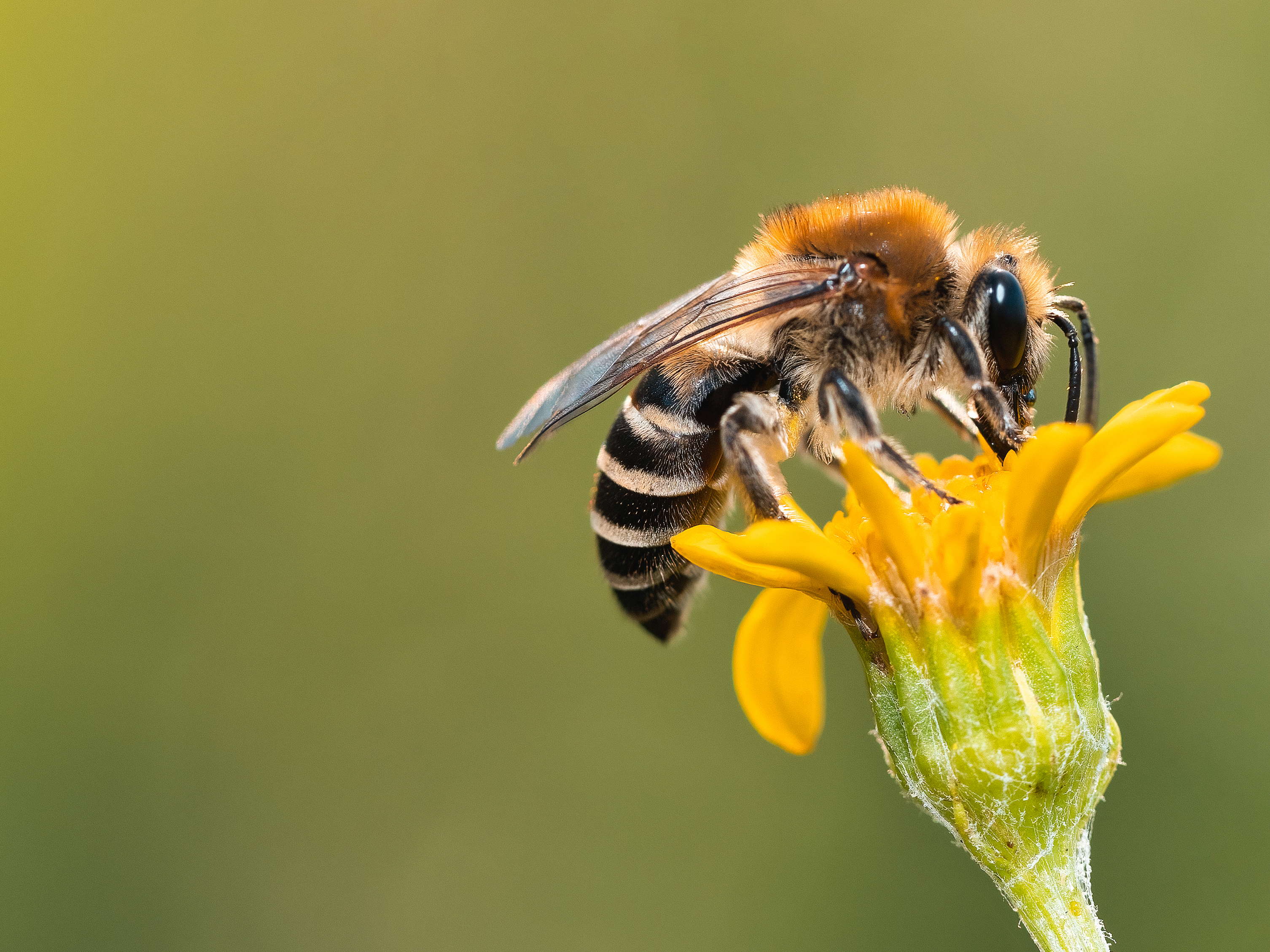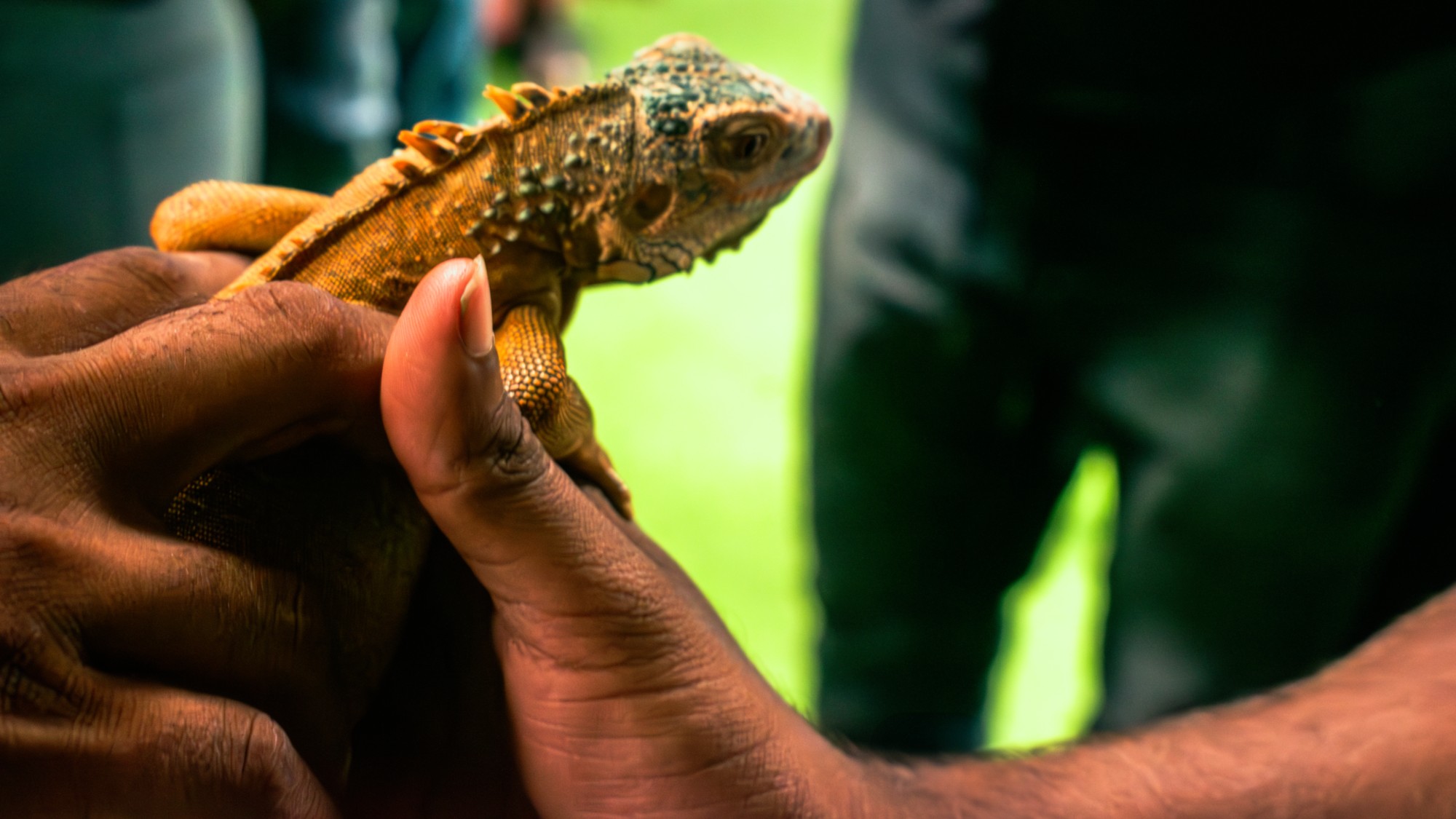Honeybees help gather data about a city's health


A free daily email with the biggest news stories of the day – and the best features from TheWeek.com
You are now subscribed
Your newsletter sign-up was successful
Analyzing honeybees could provide key insight into a city's microbiome as well as the health of its people, according to a study published in the journal Environmental Microbiome. It explains that "honeybees may be effective collaborators in gathering samples of urban microbiota," due to their foraging habits.
"Honeybees will gather a vast number of microbes day to day, far beyond things they are seeking out," said Kevin Slavin, who worked on the report. "They've been optimized by evolution to do everything that the swabs do." The research team collected samples from hives and hove debris in New York City, Melbourne, Venice, and Tokyo. They found that each city had its own "unique genetic signature," per The Independent. "It didn't feel like a disjointed metric from all of the other things that we know about these cities," said Elizabeth Hénaff, lead author of the report. "It actually kind of felt like a puzzle piece that we didn't even know existed."
A microbiome is "the unseen communities of microbes, fungi, viruses, and bacteria that live inside and around us," as defined by Bloomberg. Research has shown that exposure to a diverse microbiome generally leads to better health outcomes. "For those of us who live in cities – which is more than half of the global population at this point – it is important to be able to characterize the microbiomes of the cities that we live in, and work in, and sleep in," commented Hénaff.
The Week
Escape your echo chamber. Get the facts behind the news, plus analysis from multiple perspectives.

Sign up for The Week's Free Newsletters
From our morning news briefing to a weekly Good News Newsletter, get the best of The Week delivered directly to your inbox.
From our morning news briefing to a weekly Good News Newsletter, get the best of The Week delivered directly to your inbox.
This analysis could be used in the future to quantify differences in health among various groups as a result of environmental inequality. "We tie that, currently, to things like pollution or even shade, [but] the idea is in part just to collect as much data as we can ... to better understand what produces healthier neighborhoods, and can it be measured," explained Slavin.
A free daily email with the biggest news stories of the day – and the best features from TheWeek.com
Devika Rao has worked as a staff writer at The Week since 2022, covering science, the environment, climate and business. She previously worked as a policy associate for a nonprofit organization advocating for environmental action from a business perspective.
-
 The environmental cost of GLP-1s
The environmental cost of GLP-1sThe explainer Producing the drugs is a dirty process
-
 Greenland’s capital becomes ground zero for the country’s diplomatic straits
Greenland’s capital becomes ground zero for the country’s diplomatic straitsIN THE SPOTLIGHT A flurry of new consular activity in Nuuk shows how important Greenland has become to Europeans’ anxiety about American imperialism
-
 ‘This is something that happens all too often’
‘This is something that happens all too often’Instant Opinion Opinion, comment and editorials of the day
-
 Russia’s ‘cyborg’ spy pigeons
Russia’s ‘cyborg’ spy pigeonsUnder the Radar Moscow neurotech company with Kremlin-linked funding claims to implant neural chips in birds’ brains to control their flight, and create ‘bio-drones’
-
 How roadkill is a surprising boon to scientific research
How roadkill is a surprising boon to scientific researchUnder the radar We can learn from animals without trapping and capturing them
-
 The ocean is getting more acidic — and harming sharks’ teeth
The ocean is getting more acidic — and harming sharks’ teethUnder the Radar ‘There is a corrosion effect on sharks’ teeth,’ the study’s author said
-
 Cows can use tools, scientists report
Cows can use tools, scientists reportSpeed Read The discovery builds on Jane Goodall’s research from the 1960s
-
 5 recent breakthroughs in biology
5 recent breakthroughs in biologyIn depth From ancient bacteria, to modern cures, to future research
-
 Blue Origin launches Mars probes in NASA debut
Blue Origin launches Mars probes in NASA debutSpeed Read The New Glenn rocket is carrying small twin spacecraft toward Mars as part of NASA’s Escapade mission
-
 Dinosaurs were thriving before asteroid, study finds
Dinosaurs were thriving before asteroid, study findsSpeed Read The dinosaurs would not have gone extinct if not for the asteroid
-
 Parthenogenesis: the miracle of 'virgin births' in the animal kingdom
Parthenogenesis: the miracle of 'virgin births' in the animal kingdomThe Explainer Asexual reproduction, in which females reproduce without males by cloning themselves, has been documented in multiple species
